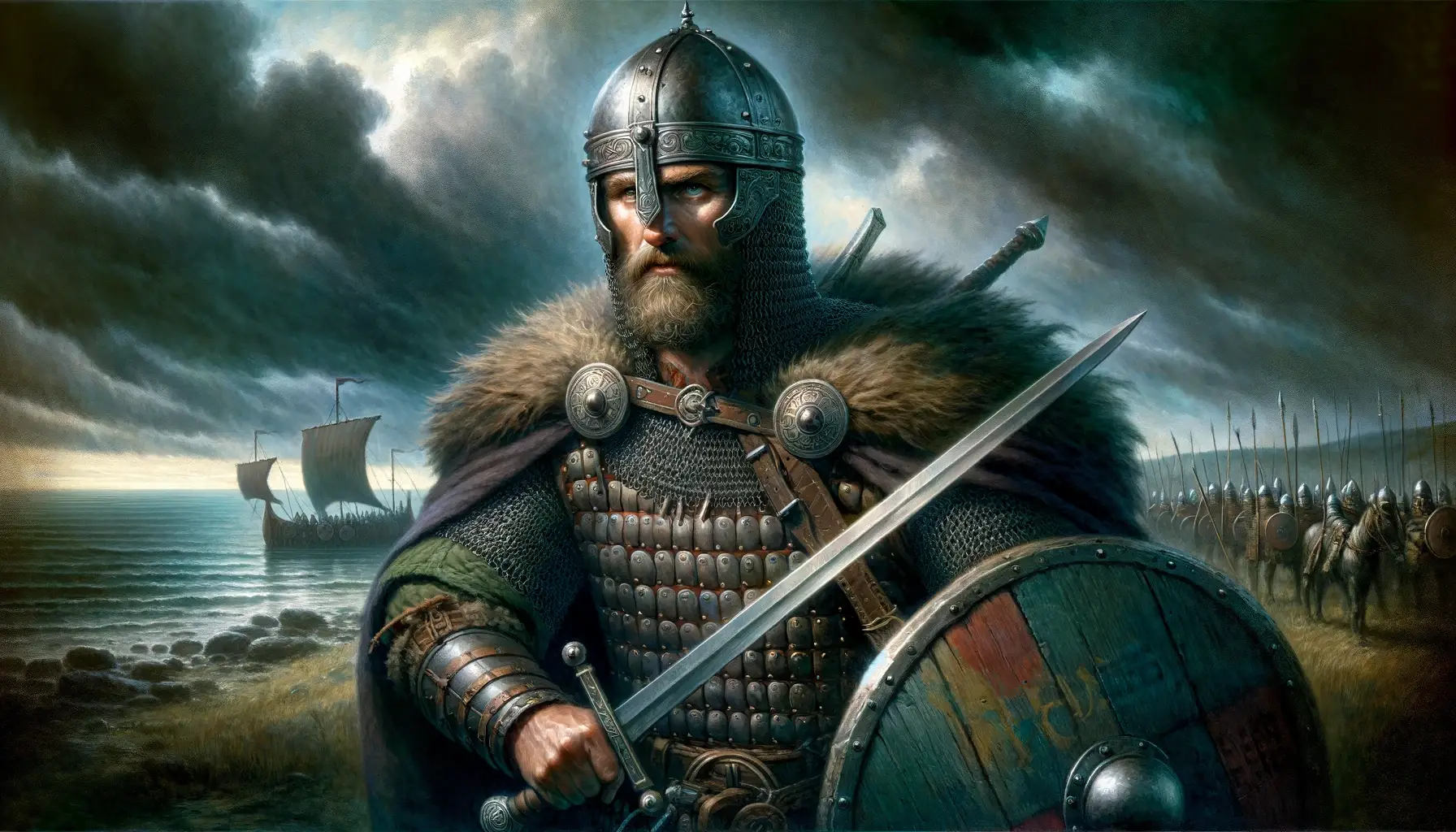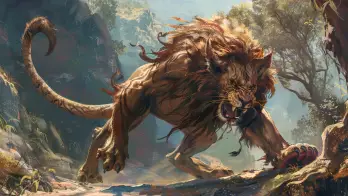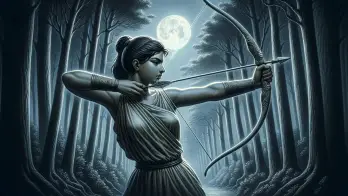Beowulf, an epic poem written in Old English, is not only a cornerstone of Anglo-Saxon literature but also a window into the early medieval world. Its narrative, centered around the hero Beowulf and his legendary feats, offers a rich blend of historical insight, mythological fantasy, and profound thematic exploration.
The Life and Adventures of Beowulf
The World of Beowulf
Beowulf’s narrative is set in a time when heroic deeds and loyalty were highly valued. The story unfolds in Scandinavia, primarily in what are now Denmark and Sweden. This geographical setting is important as it reflects the close cultural and historical ties between the Scandinavians and the Anglo-Saxons, who likely brought the tale with them to the British Isles.
Beowulf’s Upbringing and Personal Qualities
Early Life and Ancestry
Beowulf’s early life is shrouded in the mists of legend. He is presented as a member of the Geatish society, with a lineage that includes warriors and nobles. His upbringing, therefore, would have been steeped in the martial traditions and heroic values of his people.
Personal Attributes
Beowulf is portrayed as the epitome of the ideal warrior. His strength is almost superhuman, and his skills in combat are unmatched. However, what truly distinguishes him are his leadership qualities, his sense of justice, and his unwavering commitment to the well-being of his people. His bravery is matched by his wisdom, and his actions are guided by a deep sense of honor and duty.
Detailed Narrative of Beowulf’s Heroic Feats and Battles
Grendel’s Terror and the Battle at Heorot
Beowulf’s first heroic feat involves confronting Grendel, a creature born of sin and malice. The terror brought by Grendel to Heorot, a symbol of community and fellowship, underscores the monstrous nature of his acts. Beowulf’s battle with Grendel is unique as he chooses to fight the monster without weapons, relying solely on his superhuman strength. This encounter ends with Beowulf ripping Grendel’s arm off, a feat that demonstrates not just physical prowess but also his deep understanding of honor and fair play in combat.
The Underwater Duel with Grendel’s Mother
The second challenge Beowulf faces is against Grendel’s mother, seeking vengeance for her son’s death. This battle, taking place in her underwater lair, adds a mystical element to the narrative. Beowulf’s descent into the watery depths is symbolic of a journey into the unknown, facing the darker aspects of life and death. The fight with Grendel’s mother is fiercer, requiring Beowulf to use a magical sword. This battle illustrates the hero’s resilience, adaptability, and his willingness to face death.
The Dragon and the Final Sacrifice
In his final act of heroism, an aged Beowulf confronts a dragon that threatens his kingdom. This battle is markedly different from his previous encounters. The dragon, a traditional symbol of greed and a guardian of treasure, presents a challenge that culminates in a pyrrhic victory for Beowulf. He succeeds in killing the dragon but is mortally wounded. This final battle is a poignant exploration of the inevitability of death and the legacy of a hero.
Literary Themes and Significance
Language and Style
The poem is notable for its use of alliteration, a stylistic feature typical of Germanic poetry. Its language is rich and evocative, full of kennings (compound expressions with metaphorical meaning), which add a unique flavor to the narrative.
The Hero’s Journey and Its Influence
Beowulf’s Hero’s Journey
Beowulf’s story can be seen as an early form of the Hero’s Journey, a narrative structure that has been influential in storytelling across cultures. His journey includes elements such as the call to adventure (his decision to fight Grendel), crossing the threshold (traveling to Heorot), trials and tribulations (battles with Grendel, his mother, and the dragon), and the return (his death and the legacy he leaves behind).
Themes of Heroism and Morality
Beowulf explores the hero’s journey, not just through physical battles but also through his moral choices. Themes like loyalty, bravery, and the struggle between good and evil are central to the narrative. The poem also reflects on the transient nature of fame and the inevitability of death, adding a layer of philosophical depth.
Influence on Subsequent Literature
The structure and themes of Beowulf’s tale have influenced countless stories and myths that followed. The concept of a hero facing insurmountable odds, undergoing personal growth through trials, and ultimately impacting their world is a pattern seen in many cultures’ folklore and literature. From classical epics like the “Odyssey” to modern fantasy like “The Lord of the Rings,” the echoes of Beowulf’s journey can be discerned. This universality of Beowulf’s story speaks to its enduring power and its ability to resonate across ages and cultures.
Connections to Norse Mythology and Other Epics
Beowulf shares thematic and narrative elements with Norse mythology and other Germanic legends. Characters like Sigurd/Siegfried from the Völsunga saga and the Nibelungenlied exhibit traits similar to Beowulf’s. These connections highlight a shared cultural heritage across medieval Europe.
Modern Adaptations and Cultural Impact
In modern times, Beowulf has inspired a wide range of adaptations and interpretations in literature, film, and other media. Each adaptation offers a different perspective on the story, demonstrating its continued relevance and appeal.
Examples of Modern Adaptations
- Movies: The 2007 film “Beowulf,” uses advanced animation techniques to bring a new dimension to the story.
- Literature: John Gardner’s novel “Grendel” (1971) presents the story from the monster’s perspective, offering a fresh and philosophical take on the Beowulf legend.
An Epic Legacy
The story of Beowulf, transcending its medieval origins, continues to captivate audiences with its portrayal of a hero whose courage and moral compass shine across the centuries. Its enduring appeal lies in its universal themes and its insight into a time when heroes were revered not just for their strength but for their character. Beowulf’s tale, encompassing the triumphs and tragedies of the human experience, continues to be a seminal work in the exploration of heroism and the human condition.
At Ancient Theory we only use trusted sources to document our articles. Such relevant sources include authentic documents, newspaper and magazine articles, established authors, or reputable websites.
- "Beowulf and the Critics" by J.R.R. Tolkien: Tolkien, known for his own epic tales, provides a critical analysis of Beowulf, emphasizing its value beyond mere historical interest. [Source]
- "Beowulf: A Translation and Commentary" by J.R.R. Tolkien: This book includes Tolkien's own translation of the poem, accompanied by his detailed commentary. [Source]
- The Electronic Beowulf Project: An online resource providing access to digitized manuscripts of Beowulf, facilitating in-depth study of the poem's text and historical context. [Source]
- "The Art of Beowulf" by Arthur Gilchrist Brodeur: This book delves into the artistry of the Beowulf poem, analyzing its structure, style, and thematic depth. [Source]







